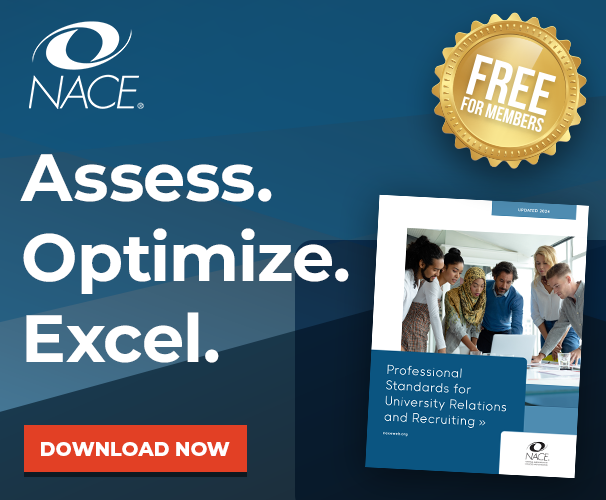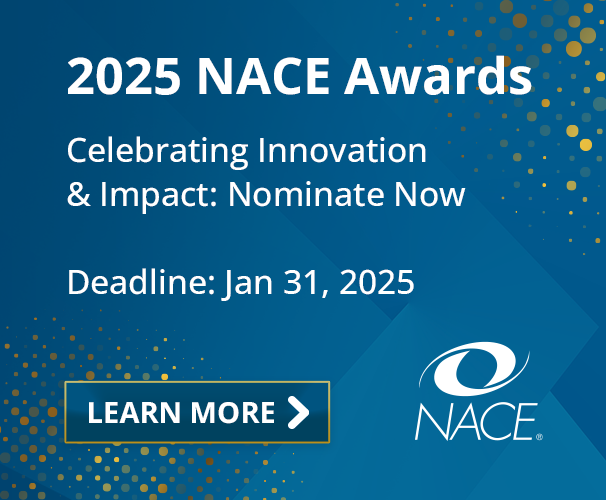What makes an intern decide to accept an offer of full-time employment?
It is likely that no one single factor accounts for a student making the leap from intern to full-time hire, but there are several circumstances that correlate.
Best Practices for Internship Programs
Read our best practices for internship programs that feed full-time hiring—including recommendations for work assignments, work arrangements, housing and relocation assistance, and program management.READ MORE
For example, interns who felt committed to the organization because they were treated well are 7.14 times more likely to accept a job offer than those who don’t feel that sense of commitment, according to results of NACE’s 2023 Student Survey.
Along the same lines, interns who liked the organization where they served their internship were 6.14 times as likely to accept an offer than those who didn’t like it, and interns who were satisfied with their internship were 6.0 times more likely to accept than those who weren’t satisfied. (See Figure 1.)
These results raise more questions: What does “well treated” mean? Why does one intern like an organization while another doesn’t? What contributes to an intern’s satisfaction with their experience?
Clearly, there is no magic formula, and there are circumstances over which the employer has little or no control, e.g., whether the intern wants a career in the industry. However, Figure 1 provides elements employers can consider as they develop their internship programs.
Figure 1: Factors predicting likelihood of conversion
| Factor | Increase in Likelihood |
|---|---|
| I felt committed to the organization because they treated me well. | 7.14 |
| I liked the organization with which I did my internship. | 6.14 |
| I was satisfied with my internship. | 6.00 |
| My experiential learning helped me determine that this was a field I was interested in for a career. | 5.63 |
| I want a career in this industry. | 5.12 |
| The people I worked with were friendly and helpful. | 4.66 |
| My colleagues valued my skills. | 4.46 |
| I felt like I belonged with my colleagues and in my work setting. | 4.37 |
| My colleagues helped to make this a good experience. | 4.36 |
| My experiential learning employer made sure I knew my contributions were valued. | 4.21 |
| My work duties were meaningful. | 3.71 |
| My experiential learning employer clearly took steps to foster equity in the workplace. | 3.62 |
| My supervisor provided me with enough support while I was doing the work. | 3.16 |
Source: 2023 Student Survey. Results are for bachelor’s degree level graduating seniors.




